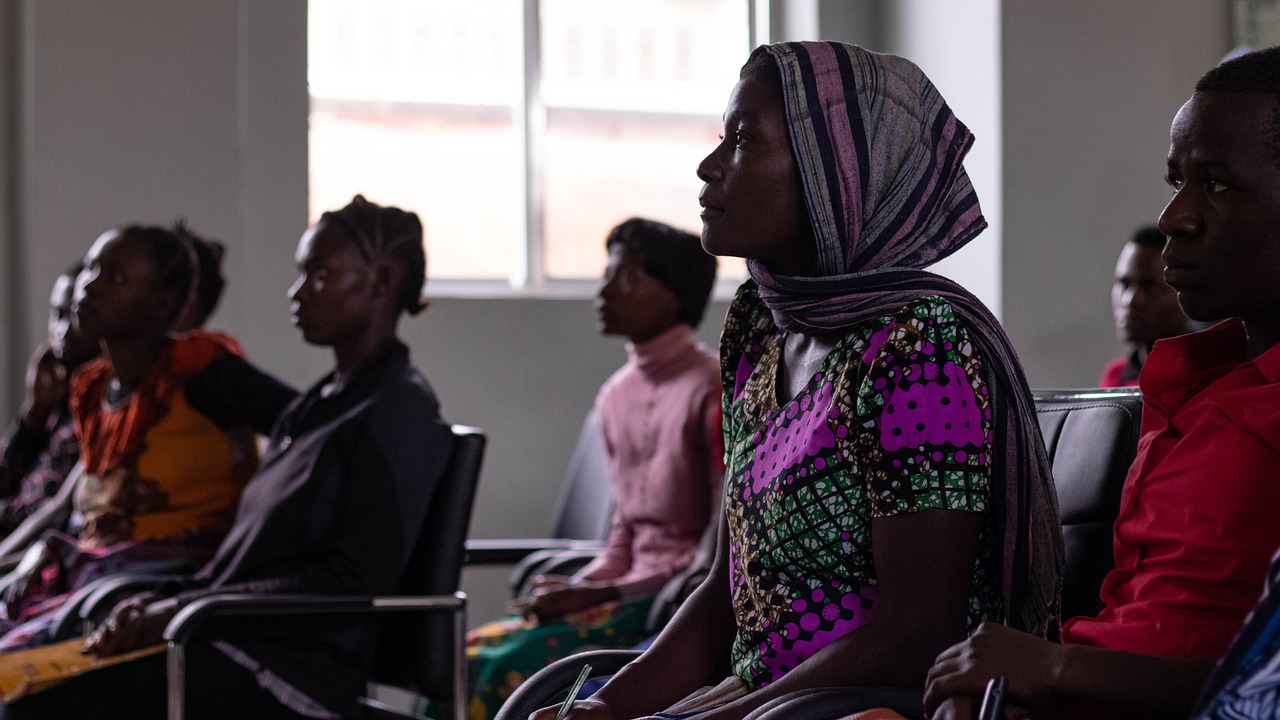By: Priscilla Wiredu
Black Voice focuses on the impact Black people have contributed to the world in intellectual ways. Their legacies and contributions do not go unnoticed as we aim to facilitate modes of inclusion among various policies and community discussions. Their ability to use their skill, voice, and mind inspire the Black community to engage within a variety of different opportunities that help shape future generations.
Given segregation, colonialism, and slavery aimed at Black people, the fight for an equal opportunity to engage in Canadian politics has not always been easy. Given these challenges, Black people have continued to break down barriers to achieve success by putting forth their hard work and talent to reach equality among all Black communities.
A recognized Canadian politician that advocates on behalf of the Black community is Rosemary Brown, known as the first Black woman elected to the provincial government of British Columbia. For Brown, this achievement challenged political stereotypes centered around women entering politics.
It also provides hope to the Black community that policies will include a perspective that will shift initiatives to focus on positive reforms in the education system, workplace, and between socioeconomic classes.
Brown rightfully earned her title as a female Canadian politician through her efforts to work alongside the Black community to educate herself on the struggles they faced. She played an avid role in listening to the stories of those who suffered from oppression as well as speaking to her constituency.
She wanted to provide Black people with equal housing, career, and education opportunities among all genders, ages, and socioeconomic classes. She was a firm believer in building a strong foundation for community involvement so that individuals would feel heard and obtain a successful future.

Early Life and Education
Brown was born on June 17, 1930, in Kingston, Jamaica. She grew up in a family who was immersed in politics. In 1951, she immigrated to Canada to pursue an education and successfully completed her Bachelor of Arts degree in social work at McGill University. She inspired many Black students to obtain an education that was meaningful and aligned with their vocational passions and interests.
Brown, along with many other Black Canadians at the time, struggled with adjusting to life especially as a new immigrant. Brown faced experiences that dealt with issues revolving around sexism and racism, whether it was applying for housing, a seasonal job, or trying to feel accepted during her studies at university.
In 1955, Brown earned her Graduate Degree in social work at the University of British Columbia. She started working towards eliminating racial and sexist barriers in Canadian society among minority groups.

Rise to Politics
During the 60s, Brown worked as both a social worker and university counselor, where she was a founding member and Ombudswoman of the Vancouver Status of Women Council.
In 1972, Brown competed and won a provincial general election, being elected as the New Democratic Party candidate in the Vancouver-Burrard riding. She undoubtedly made history for her devoted work as the first Black woman elected to a Canadian provincial legislature. This not only proved her credibility as a leader but provided a stark reputation among Black women entering politics.
She won three elections and served until 1986.
Impact
Brown was known for implementing policy initiatives that centered around improving working and social conditions for women in the legislative assembly. She was one of the first Canadians to discuss intersectionality and the social issues that followed. She recognized that race, gender, and sexuality had the potential to overlap when addressing societal issues. She understood these perspectives and put her experience into practice when advocating on behalf of Black communities.
Brown introduced anti-racist and anti-sexist measures into the British Columbian education system and curriculum. She succeeded in reducing discrimination based on their gender, marital status, and race, giving minorities a chance to advance and address their human rights within the province.
In 1956, One of her most praiseworthy achievements was establishing the British Columbia Association for the Advancement of Coloured People (BCAACP). This organization aimed to offer housing and employment opportunities for Black people in British Columbia, which encouraged discussions that dealt with human rights reforms in Parliament. on reforming human rights legislation in parliament.
Brown also succeeded in prohibiting gender-based discrimination and obtaining improved services for a variety of different cohorts including seniors, the impoverished, immigrants, and persons with disabilities.
After her retirement, Brown became a Professor of Women’s Studies at Simon Fraser University. She also worked as the Chief Commissioner of the Ontario Human Rights Commission from 1993 to 1996. She further published her own written works and speeches on efforts to foster transparency and accountability among citizens.
Legacy
On April 26, 2003, Rosemary Brown died from a heart attack at 72. During her life, she has created many opportunities for Black women in Canadian politics and received many awards for her hard work.
A year after her passing, Simon Fraser University established the Rosemary Brown Award for Women. This annual award rewards work that encourages the same beliefs, values, and ideologies aligned with Brown’s vision of inclusivity.
The work of Rosemary Brown is an inspiring story.
Her achievements and policies have helped shape Canada’s human rights legislature and anti-racism practices for future generations. Rosemary Brown is a prime example of how Black excellence and intelligence should be recognized. Her work signifies change in the right direction for many lives due to her engagement and political participation within a field that is predominantly male oriented. To ensure legislative meetings are free from unwarranted bias, leaders like Brown provide credibility and inclusive practices among women of colour.
“To be Black and female in a society which is both racist and sexist is to be in the unique position of having nowhere to go but up.” — Rosemary Brown.

Priscilla Wiredu is a writer for this year’s Black Voice project. An alumni of York University, she graduated with Honors where she studied Social Sciences. She then went on to get an Ontario Graduate certificate in Creative Writing from the Humber School for Writers, and a college certificate in Legal Office Administration at Seneca College. She is currently studying for the LSAT in hopes of going to law school. Her main goal as a Black Voices writer is to ensure Black issues and Black Pride are enunciated through her works.

